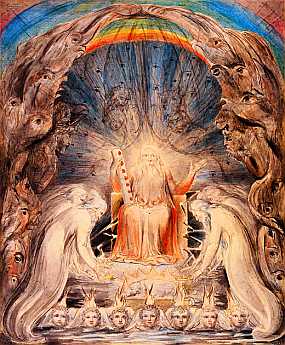My son and I were discussing the moral ramifications of “The Three Little Pigs,” when a thought struck me. A peculiarly theological thought.
Young pigs strike out from home to seek their fortunes in the world. Each encounters a man carrying a building material. Each builds a home from that building material. Depending on which version of the story you read, the first two pigs either wind up as so much meat sticking to the Big Bad Wolf’s ribs or they escape to the third pig’s impregnable fortress of brick wherein they turn the tables on the wolf and make soup out of HIM.
Being the curmudgeonly type, I prefer the more dire outcome for the two foolish pigs. I mean, the wolf was just being true to type. Why should HE suffer?
Anyway…
You can’t read that story and miss the appellation slathered on the first two pigs: foolish.
But do we ever think why?
In the story I read with my son, the pigs went their separate ways. The first one encounters a man selling straw. In some parts of the world straw makes for a perfectly legitimate building material. How smart of the pig to transact some business and build a house. A house is better than no house, right? I would think so. It rains on the just and the unjust—and on pigs, too. A roof overhead when it’s raining feels pretty darn good.
The second pig, having not heard of the misfortune that eventually caught up with his sibling, contracted with another man to buy wood for his house. Seeing as most of us live in houses made of wood,  we’re that second pig. Wood makes a fine house save for encounters with F5 tornadoes and wolves of unusual lung capacity. But that pig was still foolish.
we’re that second pig. Wood makes a fine house save for encounters with F5 tornadoes and wolves of unusual lung capacity. But that pig was still foolish.
The third pig bode his time and just so happened to come across a man selling bricks. The rest is fairy tale history.
“So, Dan,” you’re saying, “I’ve got 1,732 other blogs to read today. Get to the point.”
Some circles of Christianity, at least in my opinion, have a low view of the Holy Spirit. He seals us for salvation and helps us understand Scripture, but He’s sort of shy and quiet otherwise, kind of the introvert of the Trinity. At least as some would paint Him. He certainly doesn’t go around guiding people. We have all the guidance we need from the Scriptures and there’s no possible reason why we’d need the Holy Spirit to tell us anything apart from what any of us would find in the Book.
Tell that to Pig 1 and Pig 2.
So a man comes up to you with some straw. The pragmatist in your swinish self informs you that straw would make a decent house. The opportunity is right before you. You never know when that straw’s going to show up again. Being quite the religious pig, you consider that God makes straw, right? It’s good stuff. God said so. Plus, you hate being rained on.
Straw it is.
Or a man comes up to you with wood. Strong stuff that wood! Would make a fine house. God makes trees. Plenty of God’s little creatures live in trees. They do okay by God’s trees. And then there’s that Noah guy. Gotta love that wooden boat and all the protection it gave. You’ve been to Sunday School, so…
Wood it is.
Next thing you know, you and your brother’s little digested corpses are so much steaming wolf scat on the side of the road.
What went wrong?
I see this happen in the lives of a lot of Christians. Because they’ve chopped out the Spirit’s ability to speak to them, they make pragmatic choices rather than godly ones. Straw and wood may be perfectly good building material in all but the most bizarre cases. But what does the Spirit say? Would He tell us to hold out for something that might be coming down the road that we can’t see, but He can? Would He ask us to endure the rainstorm for a few more days until the man with bricks enters the scene and saves the day?
For all we know, straw and wood may be our only choices. The pragmatist says to strike while the iron’s hot, to make the most of the opportunities God affords us. But what does the Spirit say?
The storyteller deems the third pig wise. In the eyes of the first two, he’s a fool because he had the opportunity to buy decent building material, but he didn’t. Those first two pigs didn’t have the God’s-eye view, though.
For the truly Spirit-led Christian, of which there seems to be few in this age of pragmatic churchmen, heeding the Spirit occurs throughout the day. The kind of guidance received can’t always be traced back to the Book. Consider this disciple:
Now there was a disciple at Damascus named Ananias. The Lord said to him in a vision, “Ananias.” And he said, “Here I am, Lord.” And the Lord said to him, “Rise and go to the street called Straight, and at the house of Judas look for a man of Tarsus named Saul, for behold, he is praying, and he has seen in a vision a man named Ananias come in and lay his hands on him so that he might regain his sight.”
—Acts 9:10-12
That’s some mighty fine guidance that disciple received, but he didn’t get it by reading the Book, did he? He took that guidance rather conventionally, too, since the next verse finds him arguing about it with the Lord. Perhaps he was used to the Lord speaking to him. I can’t see any of us in the same situation, the audible voice of God telling us to drive to Death Valley to change the tire of some couple who would be open to hearing the Gospel right there amid the rattlesnakes, and us saying, “But, Lord….” I suspect that the vast majority of us would keel over from fright, our hair bleached white, because it’s far too out-of-the-ordinary that the Holy Spirit should actually guide us like the Book says He will.
Straw was good. Wood was better. Brick was best. How often do we settle for straw because we weren’t listening to the Spirit’s call to hold out for something better? Because we’re so deaf to the sound of the Savior’s voice, we may never know the difference between the pragmatic solution and the one that’s spiritually discerned. But difference there is and the only way to know it is to have the Lord shout it right in our deaf ears until we hear it as a whisper.
Then we’re getting somewhere.
 Unlike Peter above, they’ve opened their minds to too many foreign sources of supposed truth, only to stumble into error.
Unlike Peter above, they’ve opened their minds to too many foreign sources of supposed truth, only to stumble into error.
 Community existed, religious practice existed, love existed, service existed, even the Scriptures existed, but the Holy Spirit did not make his dwelling place in human beings.
Community existed, religious practice existed, love existed, service existed, even the Scriptures existed, but the Holy Spirit did not make his dwelling place in human beings. we’re that second pig. Wood makes a fine house save for encounters with F5 tornadoes and wolves of unusual lung capacity. But that pig was still foolish.
we’re that second pig. Wood makes a fine house save for encounters with F5 tornadoes and wolves of unusual lung capacity. But that pig was still foolish.